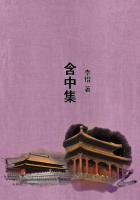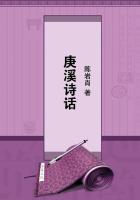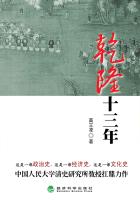This was in the year 622, and the flight is called the Hegira,--from which the East dates its era, in the fifty-third year of the Prophet's life. In this city he was cordially welcomed, and he soon found himself surrounded with enthusiastic followers. He built a mosque, and openly performed the rites of the new religion.
At this era a new phase appears in the Prophet's life and teachings. Thus far, until his flight, it would seem that he propagated his doctrines by moral force alone, and that these doctrines, in the main, were elevated. He had earnestly declared his great idea of the unity of God. He had pronounced the worship of images to be idolatrous. He held idolatry of all kinds in supreme abhorrence. He enjoined charity, justice, and forbearance.
He denounced all falsehood and all deception, especially in trade.
He declared that humility, benevolence, and self-abnegation were the greatest virtues. He commanded his disciples to return good for evil, to restrain the passions, to bridle the tongue, to be patient under injuries, to be submissive to God. He enjoined prayer, fastings, and meditation as a means of grace. He laid down the necessity of rest on the seventh day. He copied the precepts of the Bible in many of their essential features, and recognized its greatest teachers as inspired prophets.
It was during these thirteen years at Mecca, amid persecution and ridicule, and with few outward successes, that he probably wrote the Koran,--a book without beginning and without end, disjecta membra, regardless of all rules of art, full of repetitions, and yet full of lofty precepts and noble truths of morality evidently borrowed from the Jewish Scriptures,--in which his great ideas stand out with singular eloquence and impressiveness: the unity of God, His divine sovereignty, the necessity of prayer, the soul's immortality, future rewards and punishments. His own private life had been blameless. It was plain and simple. For a whole month he did not light a fire to cook his food. He swept his chamber himself and mended his own clothes. His life was that of an ascetic enthusiast, profoundly impressed with the greatness and dignity of his mission. Thus far his greatest error and fault was in the supposition that he was inspired in the same sense as the ancient Jewish prophets were inspired,--to declare the will and the truth of God. Any man leading such a life of contemplative asceticism and retirement is prone to fall into the belief of special divine illumination. It characterized George Fox, the Anabaptists, Ignatius Loyola, Saint Theresa, and even, to some extent, Oliver Cromwell himself. Mohammed's supreme error was that he was the greatest as well as the last of the prophets. This was fanaticism, but he was probably honest in the belief. His brain was turned by dreams, ecstasies, and ascetic devotions. But with all his visionary ideas of his call, his own morality and his teachings had been lofty, and apparently unsuccessful. Possibly he was discouraged with the small progress he had made,--disgusted, irritated, fierce.
Certainly, soon after he was established at Medina, a great change took place in his mode of propagating his doctrines. His great ideas remained the same, but he adopted a new way to spread them.
So that I can almost fancy that some Mephistopheles, some form of Satanic agency, some lying Voice whispered to him in this wise: "OMohammed! of a truth thou art the Prophet of the living God. Thou hast declared the grandest truths ever uttered in Arabia; but see how powerless they are on the minds and hearts of thy countrymen, with all thy eloquence, sincerity, and fervor. By moral means thou hast effected comparatively nothing. Thou hast preached thirteen years, and only made a few converts. Thy truths are too elevated for a corrupt and wicked generation to accept. Even thine own life is in danger. Thou hast been obliged to fly to these barren rocks and sands. Thou hast failed. Why not pursue a new course, and adapt thy doctrines to men as they are? Thy countrymen are wild, fierce, and warlike: why not incite their martial passions in defence of thy doctrines? They are an earnest people, and, believing in the truths which thou now declarest, they will fight for them and establish them by the sword, not merely in Arabia, but throughout the East. They are a pleasure-loving and imaginative people: why not promise the victors of thy faith a sensual bliss in Paradise? They will not be subverters of your grand truths; they will simply extend them, and jealously, if they have a reward in what their passions crave. In short, use the proper means for a great end. The end justifies the means."Whether influenced by such specious sophistries, or disheartened by his former method, or corrupted in his own heart, as Solomon was, by his numerous wives,--for Mohammed permitted polygamy and practised it himself,--it is certain that he now was bent on achieving more signal and rapid victories. He resolved to adapt his religion to the depraved hearts of his followers. He would mix up truth with error; he would make truth palatable; he would use the means which secure success. It was success he wanted, and success he thus far had not secured. He was ambitious; he would become a mighty spiritual potentate.

